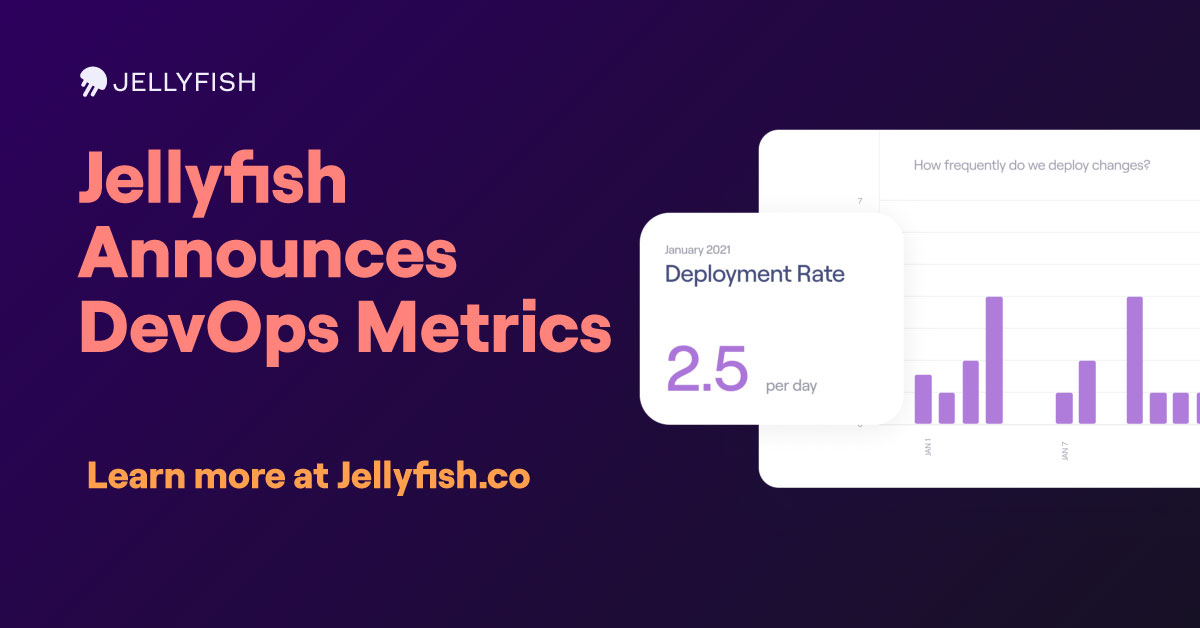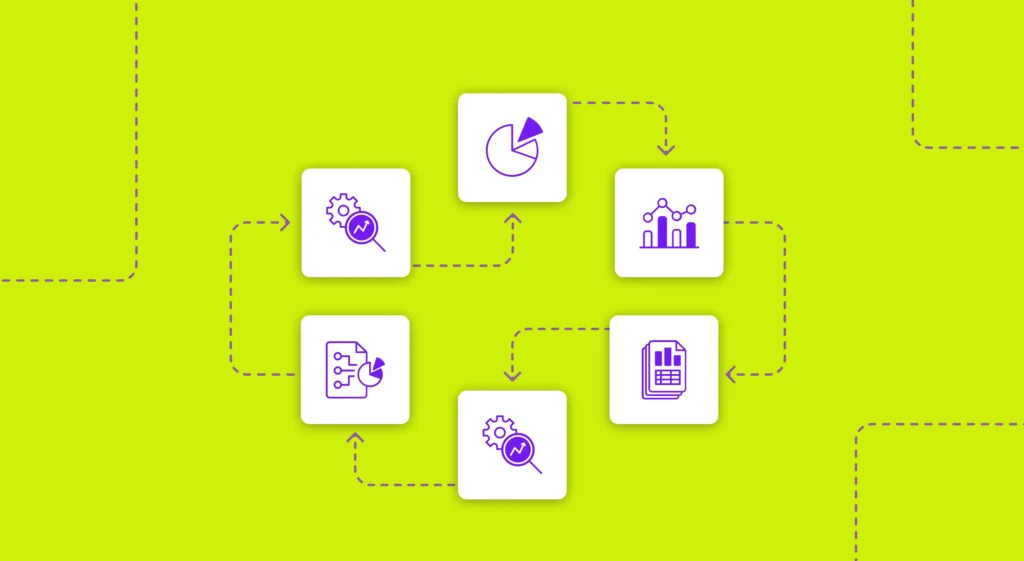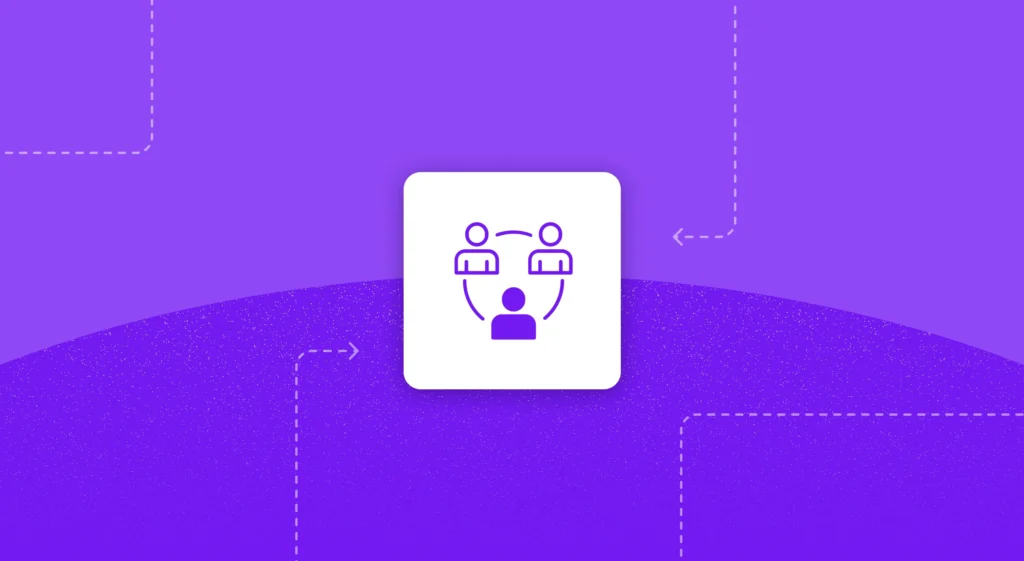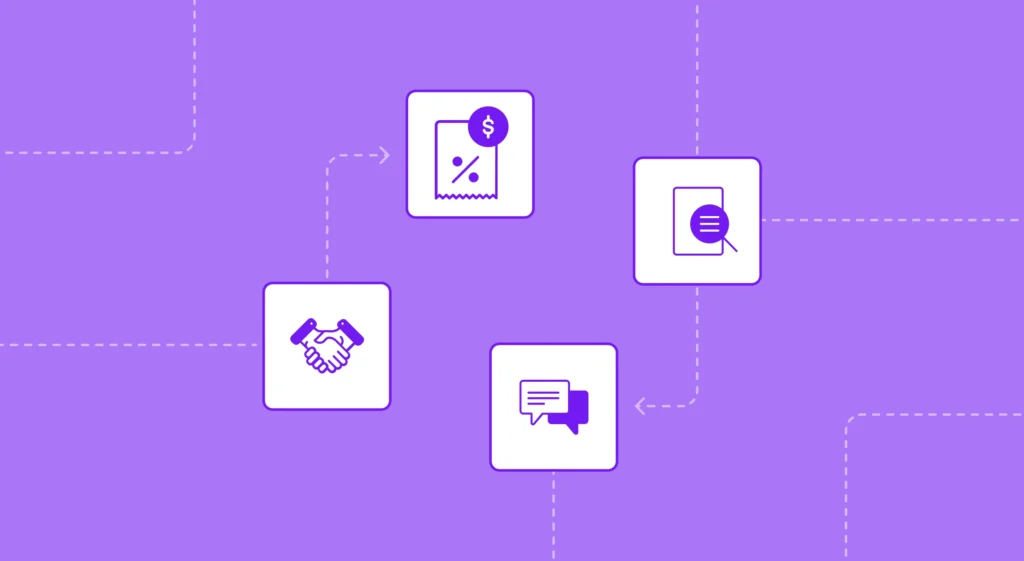Originally published on PRNewswire.
Jellyfish Adds DevOps Metrics to its Engineering Management Platform
BOSTON, Oct. 26, 2021 — Jellyfish, the pioneer of Engineering Management Platforms, today announced the launch of Jellyfish DevOps Metrics, a new feature that allows software development and DevOps teams to track and optimize software delivery. The addition of these metrics positions Jellyfish as the only platform that gives visibility into the full cycle of value delivery, enabling teams to continuously improve their engineering operations and deliver value faster and more reliably. With Jellyfish DevOps Metrics, customers can automate measurement of metrics like Lead Time, Deployment Frequency, Mean Time to Recovery, and Change Failure Rate – key metrics for elite performing engineering teams. Software engineering and DevOps teams strive to deliver value quickly and continuously to customers, but they often lack the ability to quantify progress toward that goal. In order to optimize delivery processes, practices, and tooling, teams must first be able to measure, track, and visualize them. Most teams quickly find these tasks to be more difficult and time-consuming than they had expected, leaving them with more questions than answers.
“DevOps teams and their leaders needed to answer these questions in a way that is as fast and automated as the DevOps tools and practices they are employing,” explains David Gourley, co-founder and CTO at Jellyfish. “Jellyfish gives teams the power to make DevOps measurable so they can see what’s working, fix what’s not, and ultimately deliver more value to customers faster.”
By analyzing signals from Continuous Integration, Incident Management, Issue Tracking, and other DevOps tools, Jellyfish DevOps Metrics provide constant visibility into the state of a team’s DevOps practices. This allows engineering and DevOps leaders to make process and tool standardization measurable, invest in what works, and remove what doesn’t. With Jellyfish, best in class software engineering organizations can quantify their effectiveness as defined by Google’s DevOps Research and Assessment (DORA) group as key for optimizing processes and practices for peak performance:
- Deployment Frequency: How often the team pushes deploys
- Change Lead Time: Time from when a change request is initiated to when it is deployed
- Change Failure Rate: How often incidents or deployment failures occur
- Mean Time to Restore: Average time from an incident having been triggered to when it has been resolved
“Jellyfish DevOps Metrics gives us deeper visibility into our DevOps practices, allowing us to make more informed, strategic decisions,” said Ryan Jones, Vice President of Software Engineering at Jobber. “You can’t continuously improve if you don’t know what you’re improving. Jellyfish brings reliable, accurate measurements around deployments, lead time, and failures that help us improve delivery and better support the small businesses that rely on us.”
Jellyfish DevOps Metrics is an important addition to the Jellyfish Engineering Management Platform, enabling engineering leaders to measure and continuously improve the strategy and operations of their organization, from the structure and allocation of resources, to the health and performance of their teams, to DevOps processes and tools, in order to ensure fast, efficient, and predictable delivery of quality software. The announcement of Jellyfish DevOps Metrics builds upon the platform’s current capabilities to measure engineering alignment to strategic business priorities and the performance and productivity of engineering teams.
About Jellyfish
Jellyfish is the pioneer Engineering Management Platform that enables engineering leaders to align engineering work with strategic business objectives. By analyzing engineering signals and contextual business data, Jellyfish provides complete visibility into engineering organizations, the work they do, and how they operate. Companies like SessionM (A Mastercard Company), Bazaarvoice, Jobvite, and Digital Guardian use Jellyfish to optimize the allocation of engineering resources to focus their teams on what matters most to the business.







